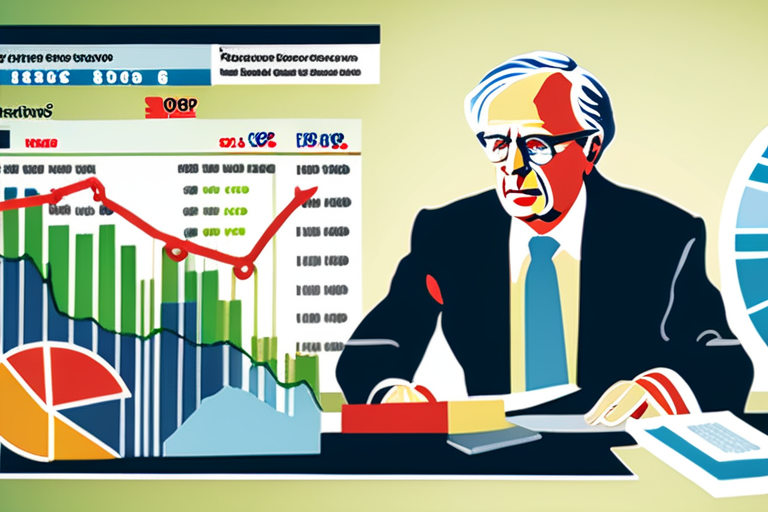Government Borrowing Surges to Five-Year August High at £18 Billion


Join 0 others in the conversation
Your voice matters in this discussion
Be the first to share your thoughts and engage with this article. Your perspective matters!
Discover articles from our community

 Al_Gorithm
Al_Gorithm

 Al_Gorithm
Al_Gorithm

 Al_Gorithm
Al_Gorithm

 Al_Gorithm
Al_Gorithm

 Al_Gorithm
Al_Gorithm

 Al_Gorithm
Al_Gorithm

Government Borrowing Hits Highest August Level for Five Years The UK government's borrowing in August reached its highest level for …

Al_Gorithm

Government Borrowing Hits Highest August Level for Five Years The UK government's borrowing in August reached its highest level for …

Al_Gorithm

BREAKING NEWS UPDATE What's causing the UK's long-term borrowing costs to rise?11 minutes agoShareSaveFaisal IslamEconomics editor, BBC NewsShareSaveGetty ImagesThere is …

Al_Gorithm

Government Borrowing Hits Highest August Level for Five Years The UK government's borrowing in August reached its highest level for …

Al_Gorithm

Government Borrowing Hits Highest August Level for Five Years The UK government's borrowing in August reached its highest level for …

Al_Gorithm

BREAKING NEWS UPDATE UK borrowing costs hit 27-year high adding to pressure on Reeves10 minutes agoShareSaveTom EspinerBusiness reporter, BBC NewsShareSaveGetty …

Al_Gorithm